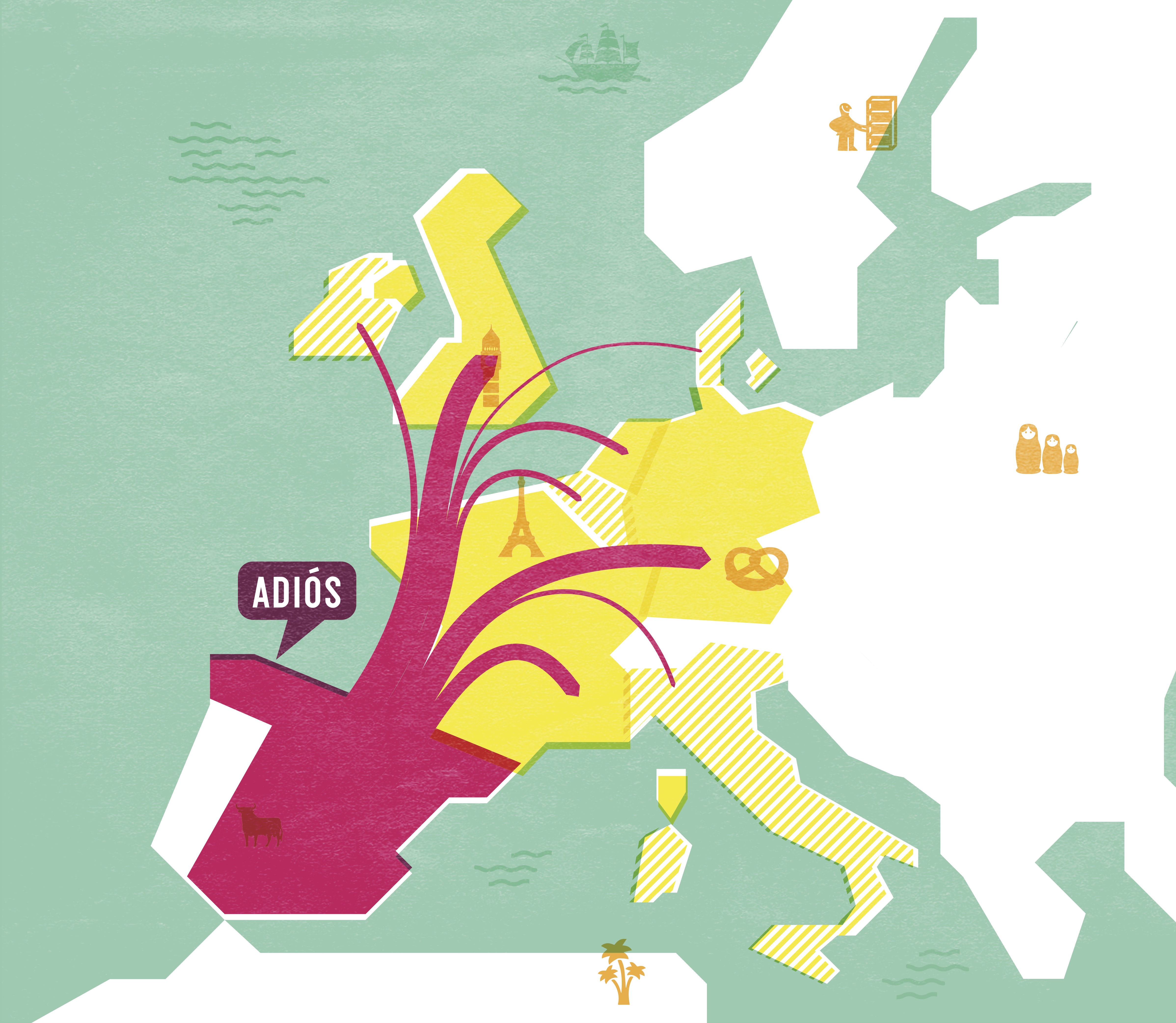Share this story
TIME TO READ: ABOUT 5 MINUTES
Daniel, a computer engineer, realized during his first week in Germany that his new home country is not like everyone back in Spain imagines it to be. Daniel had just left his home in Andalucia and moved to Munich, where he still lives with his girlfriend. He was traveling on the subway in his new home town when “I suddenly saw an old man, over 70 years old, with a blue working suite, cleaning the stairs: the world that I had imagined quickly dissolved”. Was this to be his prospect for the future? Badly paid work in poor conditions?
Like many Spanish, Greek, Italian, and Portuguese, Daniel is now one of the „Southern immigrants“ who emigrates to seek a better future. But the story is more complicated than it seems when one looks at how many expats have actually reached Germany since the beginning of the financial crisis. The difference between Spanish and German figures on non-Germans who have left Spain to go to Germany is enormous. On average, between 2008 and 2012, the number of Spanish entries registered in Germany is five times greater than the same figure as registered by the Spanish authorities, a study by the Spanish Fundación Alternativa has found.
According to the Statistisches Bundesamt, between 2012 and 2013 the number of Spanish people emigrating to Germany skyrocketed. Spaniards make up the largest group of immigrants, ahead of other Southern countries such as Portugal, Spain, Italy, and Greece, although the absolute number is lower.
Daniel came during the last phase of immigration in 2012. „My girlfriend came a few years before me without a job. Totally crazy – but she found one once she was here. With her salary, we have been able to live for at least one year,” he said, surprised by a situation that would not be possible in Spain.
In his country, expatriates have been in the media focus since 2011 when, for the first time, Spain registered more emigrants than immigrants. Some see the phenomenon as positive: as „labor mobility“, as defined by the Minister of Employment. Others, however, bewail that a „brain drain“ is occurring. „It’s a matter of survival, of courage. Where I come from, we are strongly tied to our land. But the land weight is lighter compared to the bread weight,“ says Daniel.
In his everyday life, Daniel notices discrimination against Southern European immigrants – and it increases when there are language or social class barriers. “If you come from the South, with a university degree and a job, no one discriminates against you. Now, if you’re Greek, dark-skinned and you work as a newspapers deliverer, you will find more morons than in another situation,” he says. „The problem, as in Spain, is not toward immigrants in general. The question is if the immigrant is poor or rich”.
Interested in more Stories?
Become a Member
You’ve got information for us?
Questionnaire
The project is still collecting stories in collaboration with CORRECT!V with the goal of strengthening the dataset and getting a better picture of the Generation E. The idea is to tell the migrants stories both in the countries they are from and in those they moved to. The project wants to give a look into a new European reality. You can read the form in six different languages on generatione.eu.
Become a member
Steal our Story
Help yourself! CORRECT!V is a non-profit newsroom. We want to uncover wrongdoing to change society for the better. To achieve this goal, we need as many people as possible to read our stories. Therefore we are happy if you make use of our stories by taking, republishing or sharing them. It doesn’t matter if you’re a local blog, an online-platform, a newspaper or a radio station: take it, for free. There is only one condition: We want you to notify us at info@correctiv.org. That’s important for us and our supporters. If you have a question, don’t hesitate to contact us via E-Mail. Thanks!
Do you want to use our map above for your print product or your web page? Feel free to download the graphic for every country here. There you can find as well the iFrame codes (German+English), if you want to embed it.


